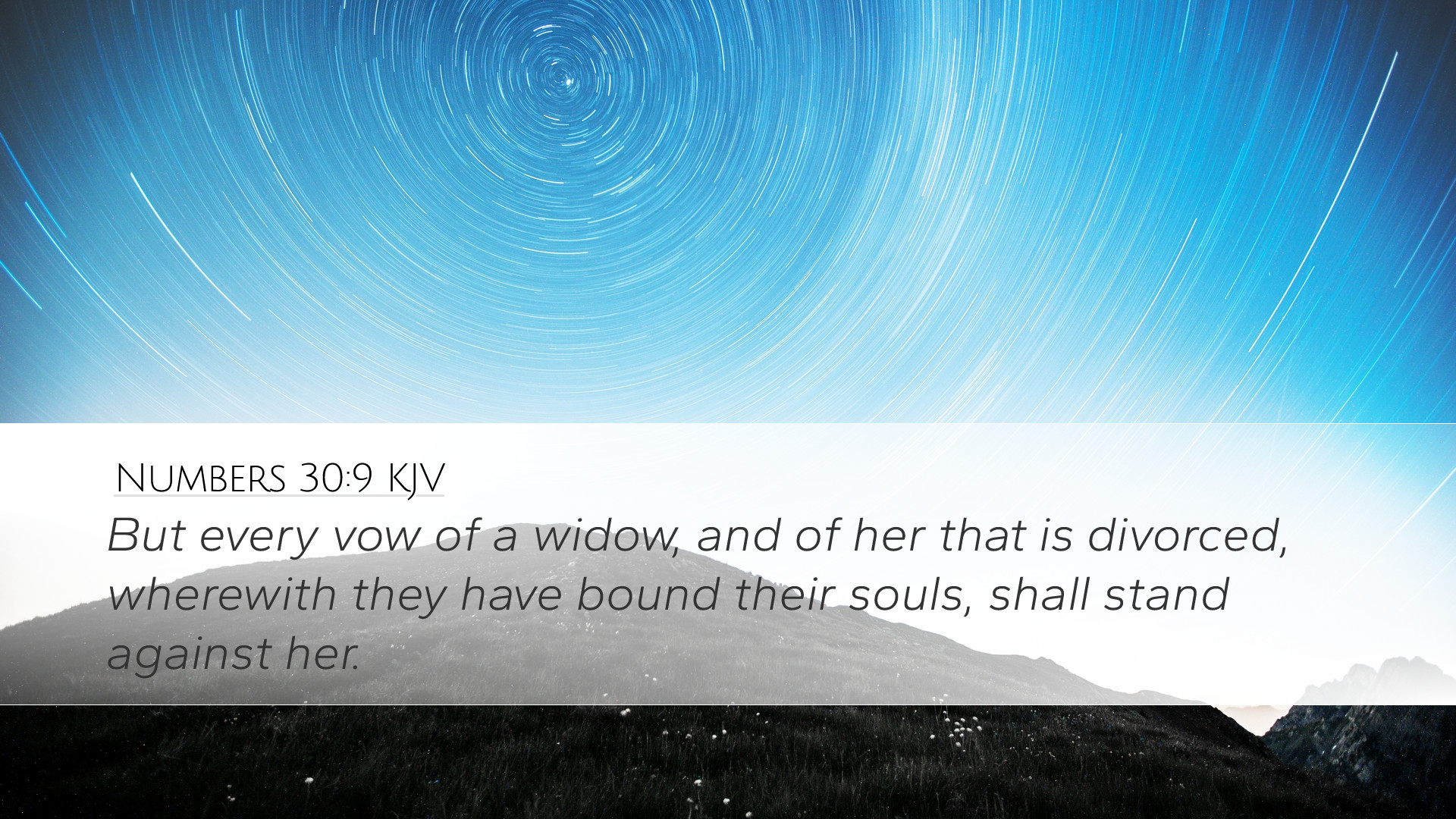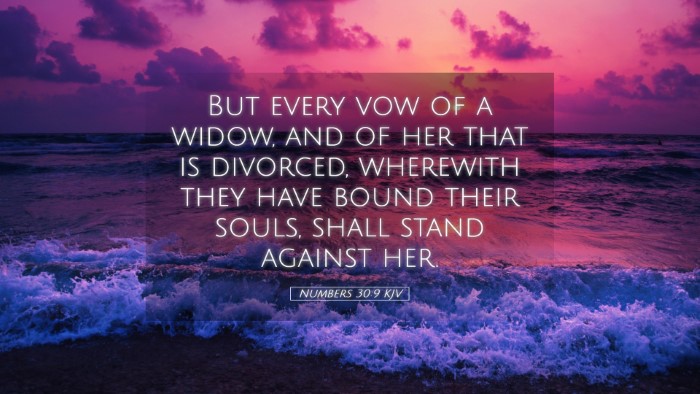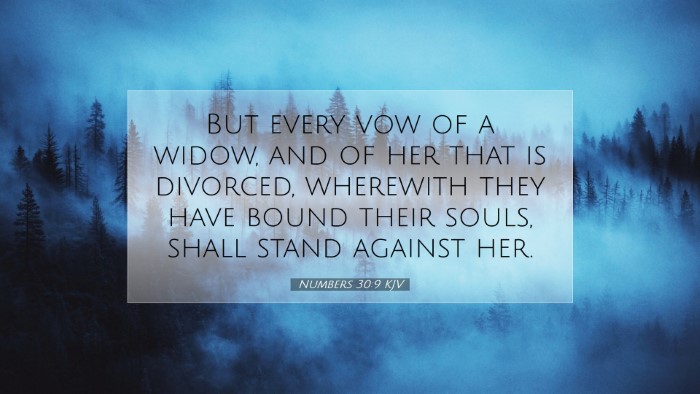Commentary on Numbers 30:9
"But every vow of a widow and of her that is divorced, wherewith they have bound their souls, shall stand against her." - Numbers 30:9 (KJV)
Introduction
The passage of Numbers 30:9 deals with the subject of vows, particularly those made by widows and divorced women. In the Mosaic law, vows were taken seriously, as they represented a binding commitment made before God. This commentary explores the implications of this verse, drawing insights from respected public domain commentaries.
The Nature of Vows
Vows are solemn promises made to God and carry significant weight in Hebrew culture. According to Matthew Henry, the act of vowing reflects a person's dedication and commitment to God, indicating a respect for divine authority.
Albert Barnes emphasizes that these vows represent a person's intent and resolve to live a life aligned with God's will. The seriousness of a vow is such that it should not be taken lightly; breaking a vow is seen as an affront to God.
The Status of Women
In the context of ancient Israel, women often had different societal roles compared to men, especially regarding authority and responsibility. Adam Clarke provides insight into the unique situation of widows and divorced women, noting that these individuals have lost their primary support and thus have more autonomy in making vows.
- Vow of a widow: A widow, in her lost state, has the freedom to make vows without the consent of a husband, reflecting her newfound independence in her relationship with God.
- Vow of a divorced woman: Similarly, a divorced woman is also free to make binding commitments. This acknowledgment reaffirms her standing and agency.
Divine Ratification
The phrase "shall stand against her" signifies that the vows made by these women are binding and recognized by God. Matthew Henry suggests that this divine acknowledgment reinforces the idea that God holds all individuals accountable for their commitments, regardless of their social status.
This principle is vital for pastoral practice today; it underscores the importance of integrity in all commitments, encouraging church leaders to guide their congregations in understanding the weight of their words before God.
Theological Implications
This verse illustrates broader theological themes present throughout Scripture. Vows symbolize commitment and devotion to God. Albert Barnes points out that the consistent call to honor one's word can be seen throughout both the Old and New Testaments, indicating that integrity and fidelity to God are core tenets of faith.
The reality that a widow’s and a divorced woman’s vows were upheld emphasizes God's concern for marginalized groups within society, showcasing His desire for justice and righteousness.
Contemporary Applications
For modern-day pastors and theologians, this passage may serve as a reminder of the importance of accountability in spiritual commitments. It opens up discussions regarding how commitments and promises made in faith communities should be treated and highlights the need to create supportive environments for those who may feel isolated or marginalized.
Moreover, church leaders can encourage individuals to approach their vows—whether in personal or communal contexts—with the gravity they deserve.
Conclusion
Numbers 30:9 is a succinct yet profound passage that speaks to the significance of vows and the standing of widows and divorced women before God. Drawing on insights from Matthew Henry, Albert Barnes, and Adam Clarke, we are reminded of the importance of commitment, the seriousness of our promises, and the divine acknowledgment of these vows. Such reflections aim to enrich our understanding and application of Scripture, fostering a deeper faith and accountability in our walk with God.


